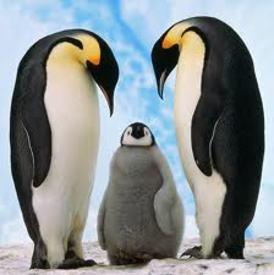Cow's milk

ImSoOTired
Posts: 186 Member
I'm not sure where to put this thread because it's not particularly about my nutrition. My daughter is 11 months old and we will be weaning her off of formula soon. Breastfeeding didn't work out well for us but I did breast feed semi regularly for 5 months and then she had formula and pureed baby food. She is now eating mostly solids but I'm not sure now long to keep her on formula. The doctor says she can have cow's milk after she is a year old. Milk will not be the keystone to her diet as formula was and she might have is about 3 times a day once weaned.
The trouble is I'm having a lot of people giving me the 'people aren't supposed to drink cow's milk' spiel. It's got me doubting myself. I drank milk as a child and I think I turned out alright (I think so anyway). I wasn't really overweight until my 20's due to overeating and less activity and I don't recall having digestive issues or any ill effects due to dairy. I drink almond milk now just because I prefer the taste but should I give cow's milk to my child?
Someone trying to persuade me otherwise sent me this link (sorry I suck at links)
http://health.howstuffworks.com/wellness/food-nutrition/facts/environmental-health-reasons-dairy.htm.
Thoughts/ opinions on whether humans are supposed to drink cow's milk?
ETA I am asking mostly for opinions and not particularly advice. I had planned on giving the child cow's milk and her pediatrician has advised it. People have been drinking cow's milk for so long that it never crossed my mind that it wasn't safe for human consumption and that is what I'm curious about.
The trouble is I'm having a lot of people giving me the 'people aren't supposed to drink cow's milk' spiel. It's got me doubting myself. I drank milk as a child and I think I turned out alright (I think so anyway). I wasn't really overweight until my 20's due to overeating and less activity and I don't recall having digestive issues or any ill effects due to dairy. I drink almond milk now just because I prefer the taste but should I give cow's milk to my child?
Someone trying to persuade me otherwise sent me this link (sorry I suck at links)
http://health.howstuffworks.com/wellness/food-nutrition/facts/environmental-health-reasons-dairy.htm.
Thoughts/ opinions on whether humans are supposed to drink cow's milk?
ETA I am asking mostly for opinions and not particularly advice. I had planned on giving the child cow's milk and her pediatrician has advised it. People have been drinking cow's milk for so long that it never crossed my mind that it wasn't safe for human consumption and that is what I'm curious about.
0
Replies
-
It's fine if you want to give your child cow's milk.
Yes, a cow produces a lot of poop in a day, but about 70% of that poop is water. Eating less beef would probably be better for the environment than drinking less milk.
And for all those people that will tell you that man is the only animal that drinks milk past infancy, that's because we're the only animal that has figured out how to procure milk. My dog, cat, and rat will all happily slurp milk if given the chance.0 -
Cow's milk is more "natural" than is the internet you've turned to for advice.

It's fine for her to drink it. Just watch for adverse signs early on, and it should all be good.0 -
evileen, thanks for responding. It's not so much the poop part than the 'humans aren't supposed to drink another animals milk' part.0
-
Milk is a perfect food!!! Go organic
Dont listen to BS!!!!!
Humans do many many other stuff that other species dont do
So what!!!0 -
I don't know about the science behind it but my family has always drank a ton of milk. We love it! My brother and sisters drink it with every meal, for me I only like it with breakfast. None of us has ever had side effects having to do with milk or to much milk or anything. Also, between the 4 of us we have had 1 broken bone and our calcium levels have always been amazing according to the doctors.
The 1 year mark is usually to avoid milk allergies as well as making sure that the child gets all the nutrients from the breast milk or the formula.0 -
Try it and see. Most people don't suffer any ill effects from cows milk.0
-
I don't have kids, but I think the "everything in moderation" is good for humans of all ages. People who drink lots of milk may develop lactose intolerance, we have developed peanut allergies through over exposure to peanut products.
When you talk about the people who say don't drink another animals milk, all i can think about is the story of the mom in England who let her kids decide when to wean themselves off breast milk...these kids were like 6 and 8 and still drinking breast milk from her breasts. The kids developed an unhealthy fixation with her breasts to the point of naming them.
So just watch out for signs of lactose intolerance, keep your doctor in the loop, and relax. You sound like a good mom. Trust yourself:flowerforyou:0 -
Listen to your pediatrician intead of a bunch of goofballs on the internet. If you question something your pediatrician advises, get a second opinon from another pediatrician
ETA: and check out the diaries of some of those saying humans shouldn't drink milk because other species don't. Ask yourself how many other animals eat the things on their diary. Then ask yourself how many animals make and drink almond milk.0 -
My family was always really pro milk and stuck with cow milk mostly. None of us ever really had problems with it and I always found it was a great drink when I came home from sports and general running around. Most of my friends were really heavy milk drinkers as well so it was a pretty common drink in our circle of friends.0
-
Ok I do drink milk if I want but rarely...
A big part of the not drinking cow's milk has alot to do with ethical reasons.
For example a dairy cow gets pregnant and her baby is generally ripped away from her and if a boy possibly made into veal and if a girl made into a dairy cow. There are also weird buckle things they put in their snout that makes it impossible for them to drink from their mama. It's depressing, not slaughterhouse depressing but still.
If you are just providing it for calcium and fats, there are other sources or you can just stick with milk.
Either way I'd do my research and make my own decision instead of listening to any of us on MFP haha.0 -
I'm glad to see that no one else has told me it isn't fit for human consumption...
I had every intention of listening to her pediatrician and giving her the cow's milk. I really just wanted to know if this was something that a lot of people believed and so far I see that it's not.
Please don't assume I'd base a decision solely on what I read from strangers on the internet. I am just looking for opinions on the subject. It was only just brought to my attention and I'd like to know what others think. Obviously I would listen to her pediatrician over anyone else.0 -
Listen to your pediatrician intead of a bunch of goofballs on the internet. If you question something your pediatrician advises, get a second opinon from another pediatrician
ETA: and check out the diaries of some of those saying humans shouldn't drink milk because other species don't. Ask yourself how many other animals eat the things on their diary. Then ask yourself how many animals make and drink almond milk.
:laugh: I like this reply best. People have been drinking cow's milk for a long time...she'll be fine. 0
0 -
I was allergic to cow milk when I was a kid so I drank goats milk.... not sure if that is good or not but just an idea0
-
Ok I do drink milk if I want but rarely...
A big part of the not drinking cow's milk has alot to do with ethical reasons.
For example a dairy cow gets pregnant and her baby is generally ripped away from her and if a boy possibly made into veal and if a girl made into a dairy cow. There are also weird buckle things they put in their snout that makes it impossible for them to drink from their mama. It's depressing, not slaughterhouse depressing but still.
If you are just providing it for calcium and fats, there are other sources or you can just stick with milk.
Okay, I see where you are coming from there...Perhaps this is more the reason I was being persuaded not to use it as opposed to it's nutritional value.0 -
It's fine, unless you start to notice issues potentially related to lactose intolerance. No, cow's milk isn't "designed" for humans, but neither are a LOT of other things we eat/drink. Unless you have an ethical reason to not want to drink milk (which I can completely respect even though I don't share that belief) the whole "cow's milk isn't for humans" argument is nonsense, IMHO.
If you do choose not to give your child cow's milk (which is totally fine, too), one word of caution - please PLEASE make sure she's getting enough fat in her diet. The primary reason that pediatricians stress children drinking whole cow's milk after weaning from formula/breastmilk is that it's one of the easiest ways for a young child to get fat into their diet via a whole food source. Of course there are plenty of others, but few quite as simple (and even fewer as toddler-friendly for the vast majority of kids) as dumping some milk into a cup. Adequate dietary fat is 100% ESSENTIAL for brain development in kids up to 2 years old or so. Just be aware of her needs, no matter the route you choose to take!0 -
i'd say go for it the doc knows best. i rember as a kid we had a field trip to a dairy farm. we got to milk the cow and even try it. goat milk is awesome to0
-
I'm not sure where to put this thread because it's not particularly about my nutrition. My daughter is 11 months old and we will be weaning her off of formula soon. Breastfeeding didn't work out well for us but I did breast feed semi regularly for 5 months and then she had formula and pureed baby food. She is now eating mostly solids but I'm not sure now long to keep her on formula. The doctor says she can have cow's milk after she is a year old. Milk will not be the keystone to her diet as formula was and she might have is about 3 times a day once weaned.
The trouble is I'm having a lot of people giving me the 'people aren't supposed to drink cow's milk' spiel. It's got me doubting myself. I drank milk as a child and I think I turned out alright (I think so anyway). I wasn't really overweight until my 20's due to overeating and less activity and I don't recall having digestive issues or any ill effects due to dairy. I drink almond milk now just because I prefer the taste but should I give cow's milk to my child?
Someone trying to persuade me otherwise sent me this link (sorry I suck at links)
http://health.howstuffworks.com/wellness/food-nutrition/facts/environmental-health-reasons-dairy.htm.
Thoughts/ opinions on whether humans are supposed to drink cow's milk?
ETA I am asking mostly for opinions and not particularly advice. I had planned on giving the child cow's milk and her pediatrician has advised it. People have been drinking cow's milk for so long that it never crossed my mind that it wasn't safe for human consumption and that is what I'm curious about.
Not a problem with cow's milk, but make sure that it is organic. Stay away from Soy milk at all cost, especially for someone so young. In fact soy milk should not be given to children.0 -
It's fine, unless you start to notice issues potentially related to lactose intolerance. No, cow's milk isn't "designed" for humans, but neither are a LOT of other things we eat/drink. Unless you have an ethical reason to not want to drink milk (which I can completely respect even though I don't share that belief) the whole "cow's milk isn't for humans" argument is nonsense, IMHO.
If you do choose not to give your child cow's milk (which is totally fine, too), one word of caution - please PLEASE make sure she's getting enough fat in her diet. The primary reason that pediatricians stress children drinking whole cow's milk after weaning from formula/breastmilk is that it's one of the easiest ways for a young child to get fat into their diet via a whole food source. Of course there are plenty of others, but few quite as simple (and even fewer as toddler-friendly for the vast majority of kids) as dumping some milk into a cup. Adequate dietary fat is 100% ESSENTIAL for brain development in kids up to 2 years old or so. Just be aware of her needs, no matter the route you choose to take!
Aha. That is what I was wondering myself but wasn't sure about. I took a nutrition class a few years ago because I worked in a childcare facility and at the time I hadn't heard anyone say anything about how people shouldn't drink cow's milk. Only that children under the age of 1 have trouble digesting it and that some people were lactose or dairy intolerant. The big thing was that children need the fats for development and that's why cow's milk was important. I suppose the conflicting information is what has me wondering.0 -
I'm not sure where to put this thread because it's not particularly about my nutrition. My daughter is 11 months old and we will be weaning her off of formula soon. Breastfeeding didn't work out well for us but I did breast feed semi regularly for 5 months and then she had formula and pureed baby food. She is now eating mostly solids but I'm not sure now long to keep her on formula. The doctor says she can have cow's milk after she is a year old. Milk will not be the keystone to her diet as formula was and she might have is about 3 times a day once weaned.
The trouble is I'm having a lot of people giving me the 'people aren't supposed to drink cow's milk' spiel. It's got me doubting myself. I drank milk as a child and I think I turned out alright (I think so anyway). I wasn't really overweight until my 20's due to overeating and less activity and I don't recall having digestive issues or any ill effects due to dairy. I drink almond milk now just because I prefer the taste but should I give cow's milk to my child?
Someone trying to persuade me otherwise sent me this link (sorry I suck at links)
http://health.howstuffworks.com/wellness/food-nutrition/facts/environmental-health-reasons-dairy.htm.
Thoughts/ opinions on whether humans are supposed to drink cow's milk?
ETA I am asking mostly for opinions and not particularly advice. I had planned on giving the child cow's milk and her pediatrician has advised it. People have been drinking cow's milk for so long that it never crossed my mind that it wasn't safe for human consumption and that is what I'm curious about.
Not a problem with cow's milk, but make sure that it is organic. Stay away from Soy milk at all cost, especially for someone so young. In fact soy milk should not be given to children.
Why should soy milk not be given to children? Honestly curious, not trying to say you are wrong.0 -
Hello! I don't think you've got anything to worry about with the cows milk. My daughter had to be on the "Gentlease" formula, and I was a little concerned about the lactose in milk, but after talking with the doctor, they said it usually doesn't affect the kiddos when drinking milk. She loves milk and gobbles it up now! It was a little strange at first, like what is this! It's not formula! But she got the hang of it pretty quickly. She's now 19 months old, and the at her 18 month check up, the doctor still wants her to drink 16 oz of milk/day and 16 oz of water/day. We tend to buy organic milk as well. I would stick with what your doctor recommends. My kiddo is on the higher percentile range, so the doctor said she could drink 2% and now whole milk, although that's what she gets a daycare. No adverse side effects here!0
-
All mammals drink milk from other mammals, and given the choice would also drink from bottles and cartons. Milk is milk, as long as it is digestible, doesn't matter.
Here is a giraffe drinking goats milk from a bottle: http://www.youtube.com/watch?v=3GGD4YcKn20
http://www.youtube.com/watch?v=3GGD4YcKn20
Here is a tiger drinking what I assume is cows milk from a carton: http://www.youtube.com/watch?v=r9btOLl9lgs
http://www.youtube.com/watch?v=r9btOLl9lgs
Here are some piglets and tiger cubs drinking milk from a pig: http://www.youtube.com/watch?v=hh69TFGpQB8
http://www.youtube.com/watch?v=hh69TFGpQB8
Here is a dog drinking milk from a cow: http://www.youtube.com/watch?v=MBn89okOpWc
http://www.youtube.com/watch?v=MBn89okOpWc
Here is a goat drinking milk from a cow: http://www.youtube.com/watch?v=77xs4KBTeW0
http://www.youtube.com/watch?v=77xs4KBTeW0
Here are some bats drinking goats milk from a paintbrush: http://www.youtube.com/watch?v=DnlJOGUUKIY
http://www.youtube.com/watch?v=DnlJOGUUKIY
I could go on.People who drink lots of milk may develop lactose intolerance, we have developed peanut allergies through over exposure to peanut products.
Do you have any evidence to back that up? It is my understanding that there is a theory that stopping consumption of milk may cause lactose intolerance. It is commonly understood that the reason those of Western European descent can digest lactose in the first place is because we are descended from those that consumed dairy products because they farmed cattle and eventually evolution gave them the lactase enzyme.
As for peanut allergies, could it be that less people are dying from anaphylactic shock and therefore are making it into their teenage and adult years since the EpiPen was invented in 1980? I will be honest: I haven't looked at the NHS-IC and ONS figures to see if my theory has any merit, so might have as much of a basis in science as your theory or the one that the more immunisations we are given the more likely we are to have allergies (not so dissimilar to the theory that allergies are caused by houses being too clean). I fail to see how I can develop an allergy to chocolate just by eating a lot of it. If things worked that way humans would have died out by becoming allergic to water.0 -
When my kids were little cows milk was no big deal. The only concern was lactose intolerance and fat content. We went with 2% milk and my kids did great.0
-
If you're asking for opinions, I'd opt for milk. I put my kids on it at about 10 months.
You are the parent, and many times, the parent knows best. There will be oodles of scare-mongers out there all your childs life. The bogey man is NOT milk.0 -
Not a problem with cow's milk, but make sure that it is organic. Stay away from Soy milk at all cost, especially for someone so young. In fact soy milk should not be given to children.
Why should soy milk not be given to children? Honestly curious, not trying to say you are wrong.
I have 2 children on Soya milk because they cant have milk. Both were given it under the guidance of both a paediatrician and a dietician. My 3 year old has been on it since 18 months.
On the giving children cows milk go for it. My eldest is a teenager and drinks it by the pint.0 -
Milk (whether cow, sheep, or goat ... or other animal) is perfectly fine ... unless you have an allergy or intolerance (and even an intolerance is usually remedied by having cultured dairy, or trying dairy from other animal, like goat instead of cow ... Casein allergy is really they only reason to shun milk products altogether, you know, anaphylactic shock is never fun) ...0
-
Not a problem with cow's milk, but make sure that it is organic. Stay away from Soy milk at all cost, especially for someone so young. In fact soy milk should not be given to children.
Why should soy milk not be given to children? Honestly curious, not trying to say you are wrong.
I don't know if this is what the poster was getting at, but soy is one of the largest produces GMO products in the US. If you're someone who knows what GMOs are and think they aren't a good thing, then that would be a good enough reason why.
I did a quick search and came up with this article that does discuss soy milk and infants, and this is what it said (note: I just looked quickly, so there may be a better article that describes it, or falsifies it):
A whopping 35 percent of bottle-fed babies in the United States receive at least some of their protein from soy. The American Academy of Pediatrics (AAP) is taking steps to change this: It recommends that all infants who cannot be breastfed be given cow's-milk formulas as the first preferred alternative. Healthy full-term infants should be given soy formula only when medically necessary, the AAP's 2008 report states. Babies with an extreme form of lactose intolerance fall into this category, but many others who suffer from colic and excessive crying are switched to soy formula despite a lack of proven benefits.
Paul Cooke, Ph.D., a reproductive biologist at the University of Illinois, has studied mice raised on enough genistein to make their blood levels comparable to those of human infants fed soy formula. Among other worrisome findings, he discovered significant shrinkage of the thymus gland, a key part of the immune system. "The thymus," says Cooke, "is like a finishing school for white blood cells—it's where they go to mature."
Whether the same effect occurs in human infants is difficult to say, but a 2001 study in the Journal of the American Medical Association surveyed over 800 adults, ages 20 to 34, who were fed either soy-based or cow's-milk formulas during their infancy. One of the few differences to emerge was that the group raised on soy formula regularly used more asthma and allergy medications in adulthood. Was this just a quirk of the sampling—or could it represent a subtle impairment of immune function?
http://www.menshealth.com/nutrition/soys-negative-effects/page/10 -
Simple Answer. YAY MILK!!!0
-
@Ferret, really interesting. I was not aware of this, thanks for researching.0
-
Not a problem with cow's milk, but make sure that it is organic. Stay away from Soy milk at all cost, especially for someone so young. In fact soy milk should not be given to children.
Why should soy milk not be given to children? Honestly curious, not trying to say you are wrong.
I don't know if this is what the poster was getting at, but soy is one of the largest produces GMO products in the US. If you're someone who knows what GMOs are and think they aren't a good thing, then that would be a good enough reason why.
I did a quick search and came up with this article that does discuss soy milk and infants, and this is what it said (note: I just looked quickly, so there may be a better article that describes it, or falsifies it):
A whopping 35 percent of bottle-fed babies in the United States receive at least some of their protein from soy. The American Academy of Pediatrics (AAP) is taking steps to change this: It recommends that all infants who cannot be breastfed be given cow's-milk formulas as the first preferred alternative. Healthy full-term infants should be given soy formula only when medically necessary, the AAP's 2008 report states. Babies with an extreme form of lactose intolerance fall into this category, but many others who suffer from colic and excessive crying are switched to soy formula despite a lack of proven benefits.
Paul Cooke, Ph.D., a reproductive biologist at the University of Illinois, has studied mice raised on enough genistein to make their blood levels comparable to those of human infants fed soy formula. Among other worrisome findings, he discovered significant shrinkage of the thymus gland, a key part of the immune system. "The thymus," says Cooke, "is like a finishing school for white blood cells—it's where they go to mature."
Whether the same effect occurs in human infants is difficult to say, but a 2001 study in the Journal of the American Medical Association surveyed over 800 adults, ages 20 to 34, who were fed either soy-based or cow's-milk formulas during their infancy. One of the few differences to emerge was that the group raised on soy formula regularly used more asthma and allergy medications in adulthood. Was this just a quirk of the sampling—or could it represent a subtle impairment of immune function?
http://www.menshealth.com/nutrition/soys-negative-effects/page/1
Soy milk is rarely, if ever, made from GMO soy (I've never been able to find a brand that is). While it is true that Americans eat a high amount of GMO soy, it is from processed food additives, NOT from soy milk.
Kids get soy mostly from chicken nuggets and pizza and other preprepared foods.0 -
I am probably in the "Humans shouldn't drink cow's milk" group. But I still use some dairy products in moderation. The crux of it for me is the definition of milk's purpose. Cow's milk is a lactating fluid SPECIFICALLY DESIGNED TO TURN A 65 LB CALF INTO A 1000 LB COW. Plus humans are the only species out there that purposefully drinks the lactating fluid of another animal. You can say that other species drink, but if humans are the ones giving it to them I don't think it counts. In nature, you don't see lions suckling goats, etc. But beyond that is also the fact that a majority of the world's population is estimated to have some degree of lactose intolerance whether they know it or not. Our bodies can only tolerate so much of it as evidenced by the limited lactase enzyme in our gut -so can we really call it food? Edible does not equal good for us.
Milk as a key source of calcium for the human population is propaganda from the Dairy industry. Its just the quickest and maybe the smallest dose for the amount it gives us. Its not the only source. That said, I believe the research telling us that full fat milk contributes to brain development in children, so if you Doc advises it and your kid isn't lactose intolerant-- then milk is good. Go for it.0
This discussion has been closed.
Categories
- All Categories
- 1.4M Health, Wellness and Goals
- 395.7K Introduce Yourself
- 44.1K Getting Started
- 260.7K Health and Weight Loss
- 176.3K Food and Nutrition
- 47.5K Recipes
- 232.8K Fitness and Exercise
- 448 Sleep, Mindfulness and Overall Wellness
- 6.5K Goal: Maintaining Weight
- 8.6K Goal: Gaining Weight and Body Building
- 153.2K Motivation and Support
- 8.2K Challenges
- 1.3K Debate Club
- 96.4K Chit-Chat
- 2.5K Fun and Games
- 4.3K MyFitnessPal Information
- 16 News and Announcements
- 1.4K Feature Suggestions and Ideas
- 3K MyFitnessPal Tech Support Questions






















